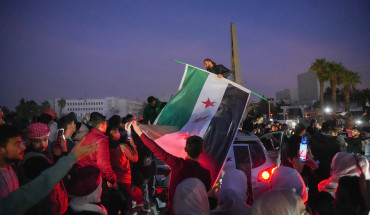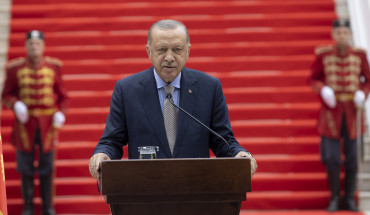Senior Iranian political and military officials have said that the Islamic Republic will not allow the United States or any other Western country to inspect its military sites under any circumstances, the Iranian media reported. “They (American inspectors) would not dare to come to Iran, and will not get access to the military centers at all, because they are part of the Islamic Republic of Iran’s security sphere,” Ali Akbar Velayati, the head of the Strategic Research Center of Iran’s Expediency Council, said on Saturday. The former Iranian foreign minister added that the United States is no longer a world super power to dictate its wishes on other nations. His comments came after the Associated Press reported that the Trump administration is pushing for inspections of Iranian military sites to test the usefulness of the nuclear deal Tehran signed with the United States and five other world powers two years ago.
Separately, asked by reporters in Tehran on Monday about the Trump administration’s plan to push for a more intrusive and regular inspection of Iranian military sites, Brigadier General Amir Ali Hajizadeh, the commander of the Islamic Revolution Guards Corps (I.R.G.C.) Aerospace Division, said: “The answer is clear. We will not give them such a permission.”
Comment: On July 27, the Associated Press reported that the Trump administration was pushing for inspections of “suspicious Iranian military sites” to test the usefulness of the nuclear deal Iran signed with the United States and five other world powers two years ago. Since then, Iranian officials have responded angrily to the report and have ruled out any inspections of the country’s military centers. This is despite the fact that Tehran had agreed under the Additional Protocol of the nuclear accord that it would provide United Nations inspectors with limited access to any site suspected of illicit nuclear activity.
Since President Donald Trump took office in January, tension between Washington and Tehran over the latter’s missile program and support for terrorism has escalated significantly. The Trump administration has levied new sanctions on Iran and Trump has hinted at the possibility of walking away from the deal. Trump and critics of the nuclear deal argue that the accord does not address Iran’s ballistic missile program and destabilizing role in the region, and add that its loopholes also provide Iran a pathway to acquire nuclear weapons in the future. Iranian officials have emphasized that Tehran is not willing to renegotiate the nuclear agreement.
At his swearing-in ceremony on Saturday, President Hassan Rouhani warned Trump of ramifications of annulling the nuclear deal, adding that Iran will not be the first to violate the deal but will not remain idle if Washington decides to cancel the agreement.
The Middle East Institute (MEI) is an independent, non-partisan, non-for-profit, educational organization. It does not engage in advocacy and its scholars’ opinions are their own. MEI welcomes financial donations, but retains sole editorial control over its work and its publications reflect only the authors’ views. For a listing of MEI donors, please click here.












